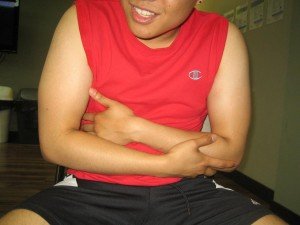Diarrhea is characterized by having loose, watery stools along with increased frequency of bowel movements to more than 3 times in a day.
The condition can be categorized as acute which has an abrupt onset and lasts less than 2 weeks. It is considered chronic if it is persistent and lasts 14-28 hours with symptoms that has been present for more than 4 weeks.
Close look on acute diarrhea
Acute diarrhea is a common form and has a variety of causes but often triggered by some form of infection. Generally, adults experience an episode of acute diarrhea in a year while young children usually have around 2 episodes in a year.
In most cases, acute diarrhea settles on its own. Nevertheless, there are measures that can help the child or allow the body to heal.

It is vital to ensure that the individual is properly hydrated to prevent dehydration. This requires taking in more fluids than usual such as clear juices, clear broths and soups or an electrolyte beverage such as a sports drink or Pedialyte.
What are the foods to avoid?
There are certain foods that must be avoided for a few days after the start of the diarrhea since they can worsen the symptoms such as:
- Heavy, fatty or greasy foods
- Milk and other dairy products
- Caffeine-based beverages such as tea, coffee and sodas
Other self-care measures
It is recommended to eat foods that are bland and soft until the symptoms settle. Suitable choices of food include cooked carrots, bananas, toast, potatoes, plain chicken and rice.
The individual should get enough rest to allow the body to fight any underlying infection.
Over-the-counter medications must only be used by adults who do not have any indications of fever or blood-streaked diarrhea. Remember that these medications are not suitable for children and should only be used under supervision by a doctor.
